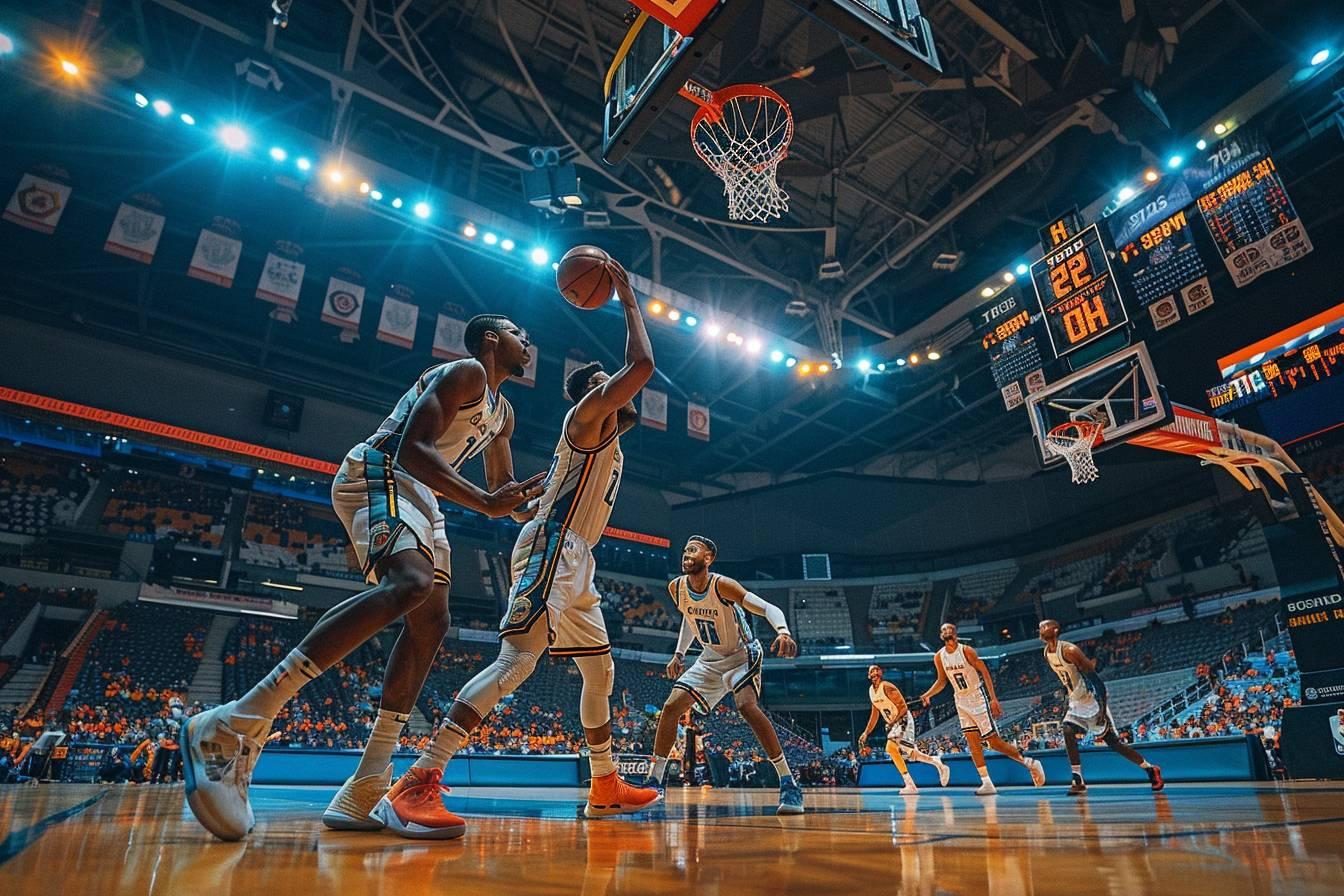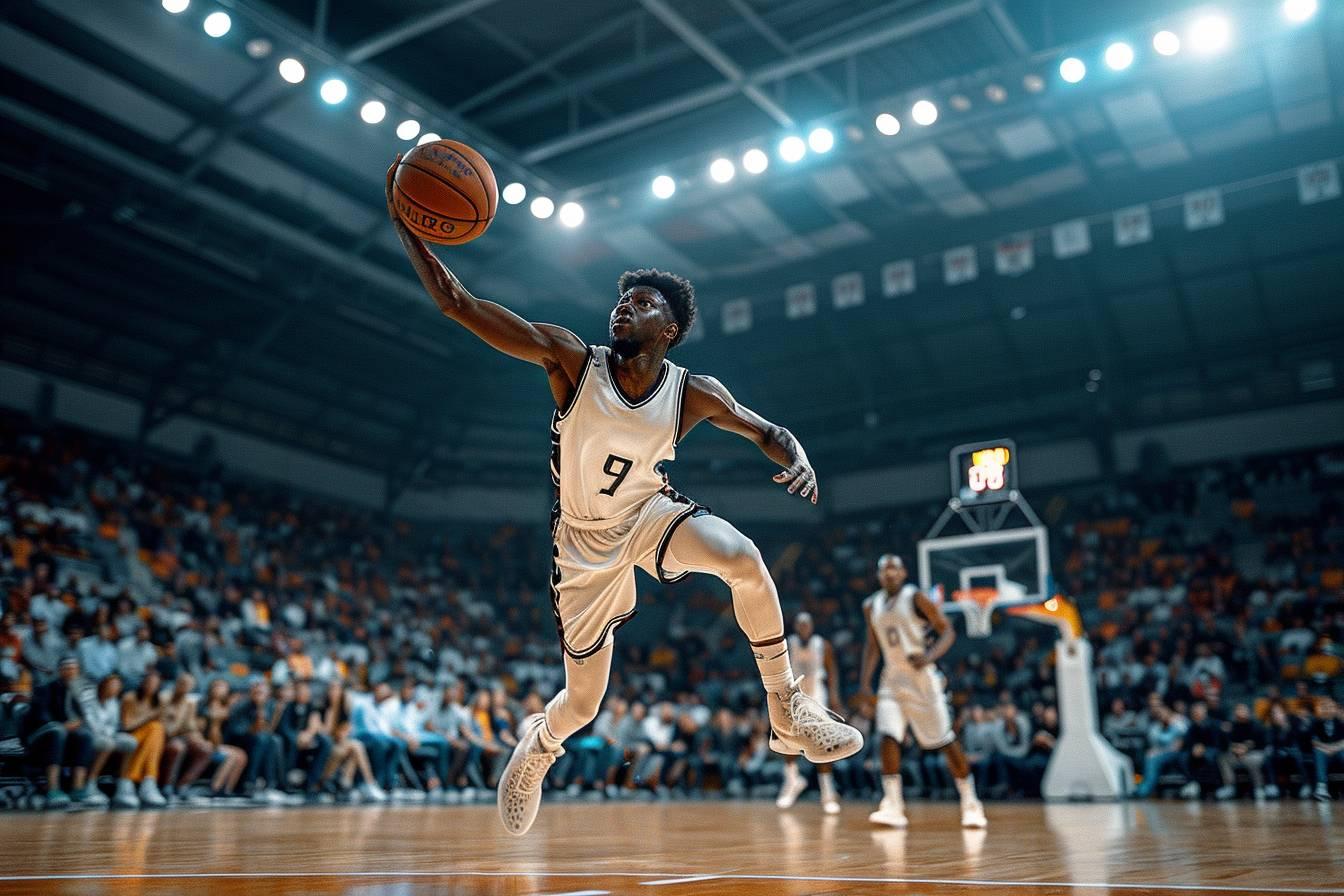🤸 To sum up :
Mastering defensive communication in basketball is crucial for team success. This article highlights key aspects :
- Effective communication techniques transform reactive defense into proactive force
- Essential defensive calls every player should know and use
- Developing a defensive mindset and basketball IQ
- Fostering a culture of defensive excellence through consistent practice and accountability
Basketball is a game of strategy, skill, and communication. While offensive prowess often steals the spotlight, defensive communication is the unsung hero that can make or break a team’s success. As passionate sports enthusiasts, we understand the importance of mastering this crucial aspect of the game. Let’s dive into the world of defensive communication in basketball and explore how we can elevate our game to new heights. 🏀💪
The art of effective defensive communication
Communication is the lifeblood of a strong defensive unit. At the highest levels of basketball, constant communication is not just encouraged—it’s enforced. This emphasis on verbal and non-verbal cues transforms a reactive defense into a proactive force, anticipating the offense’s every move.
As a fitness coach with a keen eye for technical precision, I’ve observed that the most successful teams are those where every player is a vocal participant in the defensive strategy. Here are some key elements of effective defensive communication :
- Be early and loud with your calls
- Use specific, actionable information
- Repeat important messages for clarity
- Employ agreed-upon terminology
- Combine verbal cues with gestures and pointing
Remember, great communication takes the defense from reacting to anticipating. It ensures that everyone is covered and in position, ready to thwart any offensive maneuver. By mastering these communication techniques, we can create a defensive synergy that’s hard to break.
In my experience working with various ball sports, I’ve noticed that teams who prioritize communication during practice see remarkable improvements in their defensive efficiency. It’s not just about being loud; it’s about being smart and timely with your communication. 🧠🗣️
Essential defensive calls every player should know
To build a formidable defense, players must be fluent in a common language of defensive calls. These calls serve as rapid-fire instructions that keep the entire team synchronized. Let’s break down the most crucial calls that should be in every defender’s vocabulary :
| Defensive Call | Meaning | When to Use |
|---|---|---|
| “I got ball” | Claiming responsibility for guarding the ball handler | Immediately upon matching up with the dribbler |
| “Help” | Indicating readiness to assist a teammate | When in position to provide defensive support |
| “Screen left/right” | Warning of an incoming pick | As soon as a screen is detected |
| “Shot” | Alerting team of a shot attempt | The moment an opponent releases the ball |
These calls form the foundation of defensive communication, but they’re just the beginning. Advanced teams develop an even more nuanced language, with calls for specific offensive sets, player tendencies, and situational strategies.
As someone who values competitiveness and attention to detail, I can’t stress enough how mastering these calls can give your team a significant edge. It’s not just about knowing what to say; it’s about developing the instinct to communicate automatically, without hesitation. 🏆🔊
In 2023, a study of NBA defensive efficiency showed that teams with the highest rates of on-court communication allowed an average of 3.2 fewer points per 100 possessions compared to the league average. This statistic underscores the tangible impact of effective defensive dialogue.

Developing a defensive mindset and basketball IQ
To truly excel in defensive communication, players must cultivate a defensive mindset and sharpen their basketball IQ. This cognitive aspect of the game is often overlooked but is crucial for anticipating plays and making split-second decisions. Here’s how we can develop these skills :
- Study opponents and scout their tendencies : Knowledge is power in defense.
- Understand your own strengths and weaknesses : Self-awareness is key to improvement.
- Be aware of teammates’ abilities and matchups : This allows for better help defense.
- Constantly assess what’s working and what’s not : Adaptability is crucial in-game.
- Adjust strategy as needed : Be prepared to change tactics on the fly.
By focusing on these aspects, we transform from reactive defenders into proactive strategists. It’s about thinking the game as much as playing it. A high basketball IQ allows players to anticipate offensive actions, prevent defensive breakdowns, and work as one cohesive unit. 🧠🏀
In my role as a fitness coach, I’ve seen how mental preparation can be just as important as physical training. Players with a strong defensive mindset often display higher levels of engagement and take pride in their defensive contributions. This mindset is contagious and can elevate the entire team’s defensive performance.
Consider the case of the 2004 Detroit Pistons, who won the NBA championship largely due to their suffocating defense. Their success was built on a foundation of exceptional communication and basketball IQ, proving that intelligence and teamwork can triumph over pure athletic ability. 🏆💯
Fostering a culture of defensive excellence
Creating a team culture that values and prioritizes defensive communication is essential for long-term success. As coaches and players, we must work together to instill these habits and make them second nature. Here are strategies to foster a culture of defensive excellence :
- Make communication a focus in every practice session
- Hold players accountable for their communication efforts
- Incorporate communication drills into regular training
- Use film review to analyze and improve communication
- Measure and track communication levels (e.g., using decibel meter apps)
By consistently emphasizing the importance of defensive dialogue, we create an environment where players naturally become more vocal and engaged on the defensive end. This cultural shift can lead to remarkable improvements in team performance.
As someone who appreciates technical precision, I find that measuring and tracking communication levels can provide valuable insights. For instance, we can set team goals for communication frequency and volume, then use technology to monitor progress. This data-driven approach allows us to quantify improvement and motivate players to reach new communication benchmarks. 📊🎯
Remember, building a culture of defensive excellence is an ongoing process. It requires patience, consistency, and a commitment from every member of the team. But the rewards—a more cohesive unit, fewer defensive breakdowns, and ultimately, more wins—make it well worth the effort.
By implementing these strategies and fostering a communication-rich environment, we lay the groundwork for a formidable defense that can stand up to any offensive challenge. Let’s embrace the power of our collective voice and transform our defense into an impenetrable fortress. Together, we can elevate our game and achieve basketball greatness through the art of defensive communication. 🏀🗣️💪



